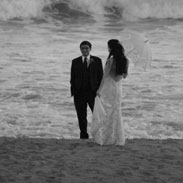White House, Black President
By Clifford Hilo, Maya Montañez Smukler, Julia Wright
Only in the most contemporary moment has the notion of a black president been a historical reality, and yet this imagined figure has been represented in film as far back as 1933's Rufus Jones for President played by a seven-year old Sammy Davis, Jr. to Terry Crews' hypermuscular President Comacho in 2006's Idiocracy. “White House, Black President” studies the imagination of black presidency and its politics of representability in three areas. In an act of retroactive reclamation, Clifford Hilo's "Barack Obama and the Politics of Joy" searches for the apropos filmic metaphor for President Barack Obama and finds it in representations of Abraham Lincoln. In dialog with Adilifu Nama's Black Space: Imagining Race in Science Fiction, Julia Wright's "Black to the Future" explores the intersection between blackness and science fiction films since the 1990s, asserting that the presence of black presidents in such a genre provides a meditation on blackness, masculinity, and social progress in America. Maya Smukler's "White House Humor" examines the use of political satire by black comics such as Richard Pryor, Eddie Murphy, and Chris Rock, in which humor arises from the incongruencies between race, power, and American history--for these comics, it is precisely the improbability of such a representation that, until recently, that has supplied the notion of a black presidency with such satirical valence.
Author bios:

Black President is licensed under a Creative Commons Attribution-Noncommercial-No Derivative Works 3.0 United States License



